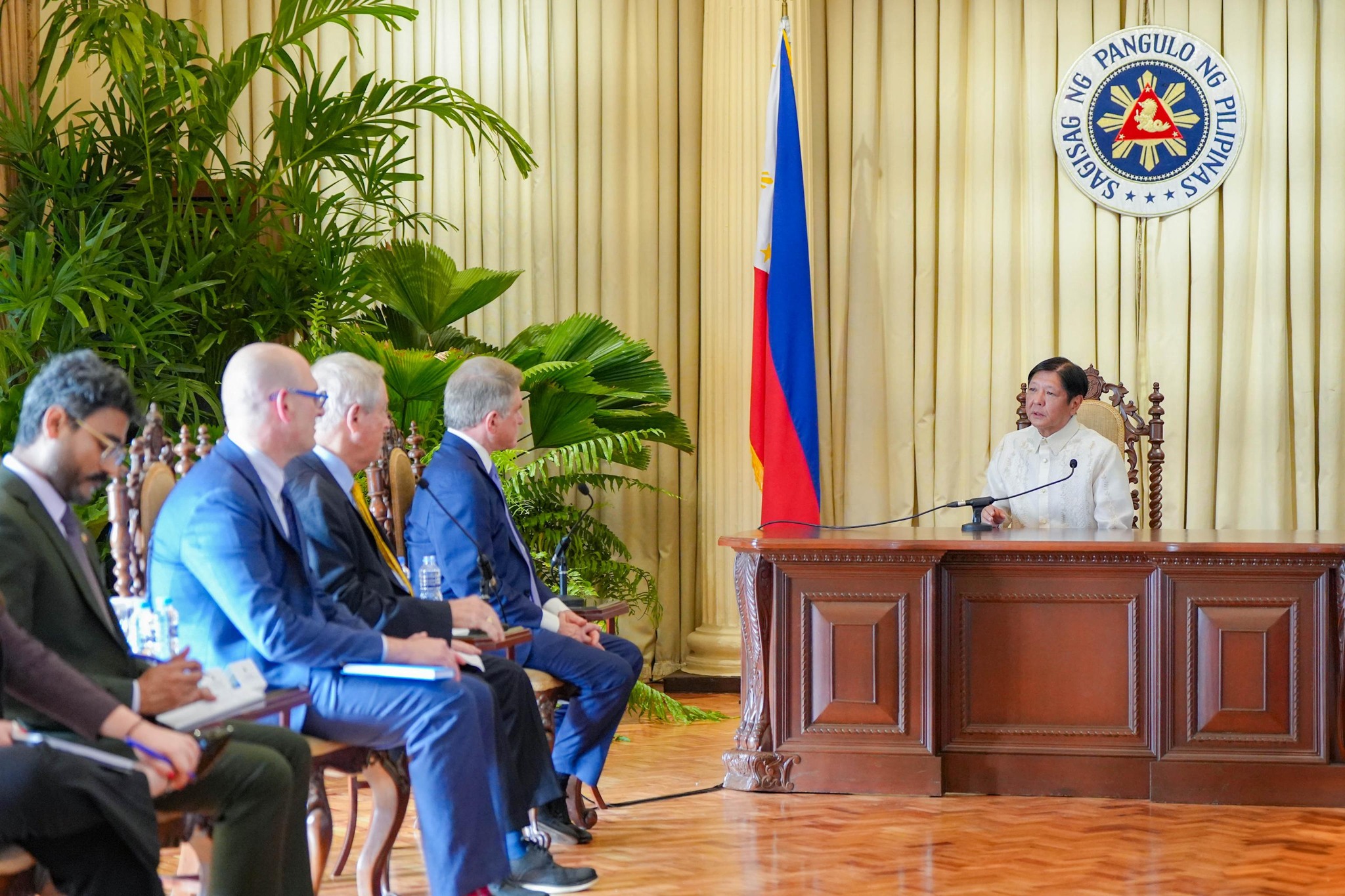MANILA – President Ferdinand R. Marcos Jr. is pleased over the Philippines’ improving partnership with the United States (US), its oldest and only treaty ally.
This, as Marcos, during his meeting with members of the US Congressional Delegation (CODEL) at Malacañan Palace in Manila on Thursday, thanked the US for its continued support for the Philippines, Presidential Communications Office (PCO) Secretary Cheloy Garafil said in a statement on Friday.
“The fruits of those partnership, of those alliance that we are now forming to face up to these new challenges that we really had before are I think very true although we are [coming] from resolution at least to manage the situation,” Marcos told the US CODEL, as quoted by the PCO.
“Again, on behalf of the Philippines, we express our gratitude for all the United States has done and continues to do in support of our alliance and to strong adherence for the Philippines,” he added.
The US CODEL was led by Rep. Michael McCaul (Republican-Texas), who serves as chairperson of the House Committee on Foreign Affairs and Chairman Emeritus of the House Committee on Homeland Security.
Rep. Addison Graves Wilson (Republican- 2nd district of South Carolina), member of the House Committee on Foreign Affairs, joined McCaul during the courtesy call on Marcos at Malacañan.
Garafil said McCaul and Wilson were primarily interested in hearing the Marcos administration’s views and concerns about China and what the US can do to support its assertion of the Philippines’ sovereignty, sovereign rights, and jurisdiction in the West Philippine Sea (WPS).
McCaul expressed his gratitude to Marcos for the Philippines’ support to the US and assured the Philippine president of Washington’s inclusion in the Foreign Military Financing (FMF).
“The supplemental (appropriation) is very important, we see Israel, see Ukraine, see Indo-Pacific—three areas in the world, three regions [receiving] attack from tyrannical governments. We see President [Vladimir] Putin and President Xi [Jin Ping] made an alliance in Beijing,” McCaul said.
Around USD500 million out of the USD2.5 billion FMF supplemental budget for the Indo-Pacific will be given to the Philippines following a 2+2 Foreign and Defense Ministerial Dialogue with Secretary of State Antony Blinken, Foreign Affairs Secretary Enrique Manalo, and Defense Secretary Gilberto Teodoro Jr.
Bilateral defense and security engagement remains a key pillar of the two nations’ bilateral relations and is carried out within the framework of the Mutual Defense Treaty (MDT), the Visiting Forces Agreement (VFA), the Enhanced Defense Cooperation Agreement (EDCA), and other bilateral agreements.
The US also remains an important and strategic trading and investment partner of the Philippines, having a common interest in advancing agriculture and food security, promoting energy security, boosting trade and building supply chain resilience, enhancing connectivity and digitalization, and protecting critical infrastructure.
The US in 2023 ranked as the Philippines’ third top trading partner, with total trade valued at USD19.96 billion.
Also last year, the US ranked as the Philippines’ top export market and fifth import source amounting to USD11.54 billion and USD8.41 billion, respectively.
The two nations established formal diplomatic relations on July 4, 1946.
There are an estimated 4.46 million Filipinos living in the US as of 2022, making Filipinos the third largest Asian group in the country.
PH Navy modernization bearing fruit
Meanwhile, a Philippine Navy (PN) official said the ongoing modernization program of the service is now reaping dividends as seen in the just-concluded “multilateral maritime cooperative activity” (MMCA) in the West Philippine Sea (WPS) among the Philippines, Australia, Canada and the US.
“It highlights the modern capability of your PN to operate with other like-minded navies to ensure regional peace and security,” PN spokesperson for the WPS Rear Admiral Roy Vincent Trinidad said in a message to the Philippine News Agency.
During the MMCA which ran from Wednesday to Thursday, the PN deployed the missile frigate, BRP Jose Rizal (FF-150), its embarked AW-159 “Wildcat” anti-submarine warfare helicopter, considered the best platform for such mission, aside from the offshore patrol vessel BRP Ramon Alcaraz (PS-16).
“The recently concluded (MMCA) was held within our EEZ (exclusive economic zone) was within the bounds of international law and supported the 2016 Arbitral Tribunal ruling that global commons should remain free and open,” Trinidad said.
The MMCA included events such as pre-sail briefing, communication exercise, division tactics/officer of the watch maneuver, photographic exercise, cross deck landing operations, anti-submarine warfare exercise, replenishment at sea, contact reporting/maritime domain awareness, and a final exercise. (with Priam Nepomuceno/PNA)






















